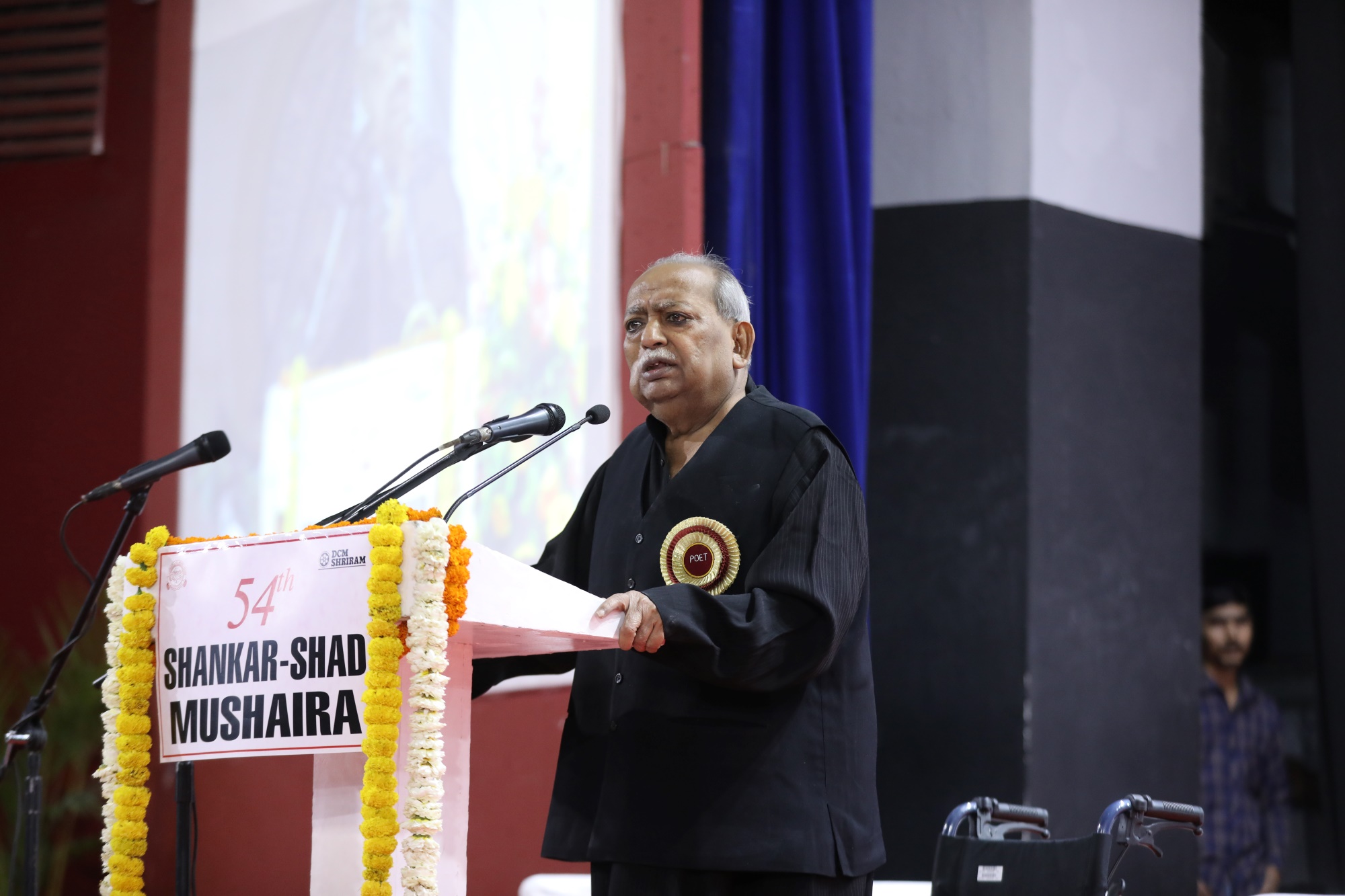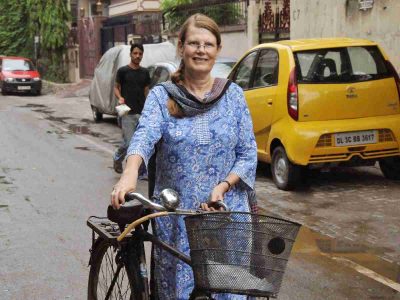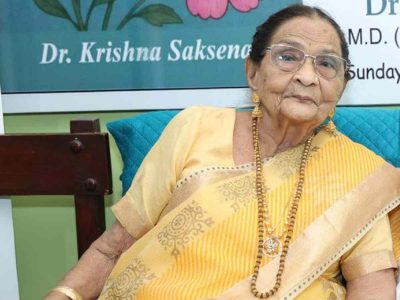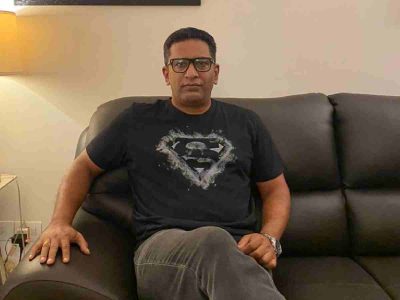“Mujhe aisa mehsoos hota hai ye mera aap logon ke sath aakhiri mushaira hai (I have a feeling that this could be my last mushaira in Delhi)”, Munawwar Rana had said this last year to Madhav Sriram, the legacy carrier of India’s Urdu Adab through the famous Shankar-Shad mushaira in the country. He repeated the same on stage as he stood up from his wheelchair to recite his creations in the mushaira held in New Delhi.
Vo mujhe chor key yun aage badha jata hai
Jaise mera safar khatam hua jata hai
(He leaves me as if it indicates the end of my journey too)
This sher (couplet) springs out of Waseem Barelvi on the death of his “younger brother-like Munawwar”.
The renowned shayar’s words became prophetic. The shayar who lived in Lucknow with his family breathed his last at 71 early this week. He was not keeping well. Issues of blood pressure, kidney and heart ailments were troubling him for few years. During Covid, the shayar had been treated at AIIMS, New Delhi. Renowned poet Javed Akhtar has given shoulder to his body. He broke down addressing his death, as “an end of culture and tehzeeb”.
Munawwar Rana came into the shayri (poetry) scene a little later than his contemporaries but very soon, he covered a long gap that an ordinary shayar with lesser sensibilities than him, wouldn’t have. He had a business of transport but his sensibilities were literary and his personal culture was to preserve close-knit family ties — a bond between generations.
Endorses none other than the senior most renowned shayar Waseem Barelvi.
He speaks to this correspondent over phone. “Initially, he took great interest in dramas, wrote several nasr (prose) and takhliqui kam (creative work). He was the shaagird (understudy) of Wani Yasir in Lucknow who used to bring out a magazine called Deen-o-Duniya. Among the regular stalwarts coming there, Munawwar also used to come and learn from his seniors.
He entered the mushaira scene quite late, but as he wrote in the language of the common people — simple Urdu — and spoke about his sharp observations of life, he climbed the ladder of success faster than others. His poetry was a hyper-emotional person’s rendition. No wonder audiences connected quicker with him than most of his contemporaries. He changed the colour of a particular theme (largely romance and wine) dominating the shayri world. His shayri on mother barely has a parallel.
“Unke jaane se stage par gehra sannata hai (I feel now the stage is empty without him), the poet’ voice choaks.
Rightly so. Many poets have written on mother but Rana’s way of highlighting it, caught among the young and the old alike. One remembers his mushaira in New Delhi organised by Indian Council of Cultural Relations (ICCR) in mid-2000. He got standing ovation for few minutes as he read out almost boasting, “Mamooli aik qalam se kahan tak ghaseet laye, Hum is ghazal ko kothey se maa tak ghaseet laye” (With my ordinary pen, I brought the ghazal from brothel to a mother) and Is tarah mere gunahon ko vo dho deti hai, Maa bohot ghussey mein hoti hai, to ro deti hai (This is how my mother forgives my sins, she weeps when angry within).
One recalls a mushaira being held at New Delhi’s India Islamic Culture Centre in early 2000s. Among several noted shayars, there was one person who was constantly drawing peoples’ attention. He was wearing a black kurta and dhoti. He was not easy to ignore due to his height, health and personality. His deep, big, black as if kohl-rimmed eyes seemed in constant search of someone. He looked highly observant. Those days the poet was a little less known. Among noted shayars media was hunting on, Rana was waiting for his turn to be interviewed. A commotion happened and the mushaira was announced. On his turn Rana recited a couplet that witnessed moist eyes and the sound of sobs among the audiences.
Maine rote hue kisi din poch diye they aanssoo, muddaton maa ne dhoya nahi dupatta apna (I wiped my tears one day with it, my mother didn’t wash her drape for ages). All eyes turned on this poet and screams of ‘once more’ resounded the auditorium.
Rest they say is history
Kamna Prasad, the organiser of Delhi’s another legacy of mushairas Jashn-e-Bahar remembers “brother Munawwar” for having no ego in reciting the couplets by others and giving them due credit.
He remembered so many couplets of others, “Largely shayars are very particular about reciting only their own couplets but Munawwar bhai would always make sure to recite ash’aar (couplets) that he liked of other poets by giving them due credit. We would have long conversations on adab, tehzeeb, and marsiye each time he came on my request to participate in Jashn-e-Bahar.”
The poet, one recalls on his last meeting with this correspondent, had recommended that organisations like Shankar-Shad and Jashn-e-Bahar should get great recognition by the government for keeping India’s syncretic culture alive.
This had fetched him respect among so many of his contemporaries. However, few of them would always disagree to his ways of reciting ash’aar (couplets) on stage.
A renowned poet on condition of anonymity shared, “His adakari (acting) or melodrama on stage while reciting couplets on mothers, children and daughters was not required. This came into him from the majalis (gatherings) he used to sit in and recite marsiye (lament of the dead) on martyrs Hussain and Hassan. As a poet, I would never approve of such a drama on stage.”
However, most poets disagree with it, shoving it aside saying many poets/poetesses singing in unnecessary long tarannum (singing in a musical way) is no less of a drama on stage too.
He knew he won’t be alive
“A frugal eater in his later years,” Madhav Sriram recalls in choked voice. “He almost became vegetarian in his last days. We used to put kababs and other non-vegetarian fare in our buffet but Munawwar bhai used to say, ‘Main to ab shakahari ho gaya hoon. Mujhe bas sadi daal roti de do (I have become a vegetarian. Just give me some roti and plain lentil)’.”
Almost breaking down, he continues, “He had said to me, ‘Perhaps, this is my last mushaira with you’ and made us all very emotional, as if he knew what he was saying. We told him, ‘you will have a long life, don’t say this please’. And we all got intensely emotional. Today when I heard of his demise, it is difficult for me to come to terms with it.”
For Madhav, his most loving trait was “his feminine side”.
“No poet has reached the femininity Munawwar Bhai had reached, as much as his shayri of protest. At Shankar-Shad Mushaira, we never stopped any shayar from speaking up their hearts because we always had believed that art is also a work of protest. Munawwar Bhai spoke openly on his resentment after Godhra riots and other activities that he didn’t like of any government that was in power. On one of his asha’ar, we were branded by one channel as anti- India or anti-national mushaira too but we sailed through.”
Madhav reminds one among his call-out to creative fraternity and masses, “Ye Shahar-e Ahtajaj hai, Khamosh mut Raho; Haq bhi nahi milega, taqaza kiye baghair’ (This is the city of protest; Don’t be silent. You won’t get your right, without demanding it).
Many Indians and especially Delhiites have been immensely fond of the poet because of his bravado on being with the right side of the law. His relations with the government started to see a damage after he spoke openly about the Gujarat riots, Shaheen Bagh, mob-lynching and UP government’s attitude towards minorities. His family was threatened and it saw the poet weak but angry.
The last mushaira
On his last Shankar-Shad Mushaira that was organised as usual at the Modern School on Barakhamba Road, Rana had come on a wheelchair, in his usual attire – black kurta and lungi. He looked pale, and weak. This correspondent requested for a few minutes of conversation — the last he had with media that day.
Are you upset with the government?
“The government is upset with me, because I talk of love and harmony,” he answered.
“What would you say about the language of new poets on stage?”
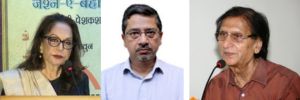
He didn’t answer directly but indicated at the way children speak at home these days, that according to him, has not only has slayed the decent and dignified language but also a culture of respect.
“During our time, the word ‘yaar’ was like an abuse. Our buzurg (elders) would denounce the child on speaking this word. Now children address their mothers as ‘yaar ammi tum to…’. This is the language that some new poets have brought to the ghazals too. Such as, a poet says, ‘Dupatte ko aage se dohra na odho’ (Don’t double up your drape from the front), is it shayri?”
All lovers of good poetry would agree to it, lest we also recall the beautiful couplet he said long ago.
Ghazal vo sinf-a-nazuk hai jisey apni rifaqat se, Vo mehbooba bana leta hai, main beti banata hoon
(With the delicate power of words in ghazals; He makes every woman, his beloved, I call her daughter in my couplets)
And khud se chal kar nahi ye tarz-e-sukhan aaya hai; Paanv daabe hain buzurgon ke to ye fun aaya hai
(I am not a poet just by words I know, but because I served my elderly).
Who can disagree to it?

